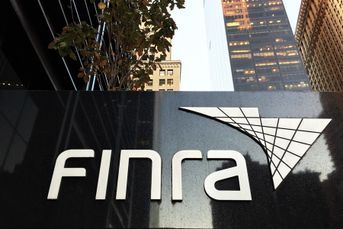Former Wells Fargo adviser part of alleged $33 million crypto Ponzi: lawsuit

The purported scheme targeted doctors and claimed their money would be used to trade cryptocurrency using a proprietary algorithm
A former Wells Fargo Advisors broker is one of three individuals who took part in an alleged $33 million Ponzi scheme that targeted doctors in Florida.
The registered rep, James Seijas, worked in Short Hills, N.J., for Wells Fargo Advisors from 2013 to 2019, according to his BrokerCheck profile.
Seijas, along with a former trader, Michael Ackerman, and a doctor, Quan Tran, ran a purported cryptocurrency trading group called Q3 Trading Club from 2017 to last December, according to lawsuits and regulatory filings.
The three claimed that money from more than 100 entities and individuals, many of them doctors, would be used to trade cryptocurrency using a successful proprietary algorithm developed by Ackerman, according to a lawsuit filed last month in Florida state court by victims of the alleged scheme.
Less than $10 million went to trading virtual currencies, according to the investor lawsuit. Instead, the three transferred at least $20 million of their clients’ funds to personal bank accounts, “spending lavishly on luxury properties and vehicles, among other things,” according to the investor lawsuit.
Tran used his position as a surgeon to gain the trust of physicians in order to induce them to invest in the scheme, according to the complaint.
An attorney for Tran, Scott Ilgenfritz, said he was not at liberty to comment. An attorney for Seijas, James Kislin, did not immediately return a call for comment Monday.
Wells Fargo Clearing Services, the formal name for Wells Fargo Advisors, is also named in the investor complaint. Shea Leordeanu, a spokesperson for Wells Fargo Advisors, said the company had no information to share about the matter.
In February, the Department of Justice charged Ackerman with fraud and money laundering. Seijas and Tran have not been charged in the matter, although Seijas’ BrokerCheck profile shows one pending customer complaint involving the broker.
Ackerman, who allegedly touted monthly returns over 15%, was able to raise over $35 million in investments for his fake cryptocurrency scheme, according to the Department of Justice. He allegedly falsified documents representing to investors that his fund had a balance of over $315 million worth of cryptocurrencies, when in actuality, he had less than half a million dollars worth.
Learn more about reprints and licensing for this article.







